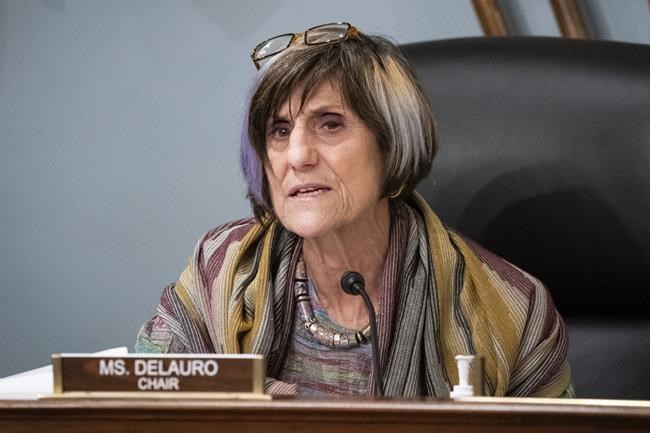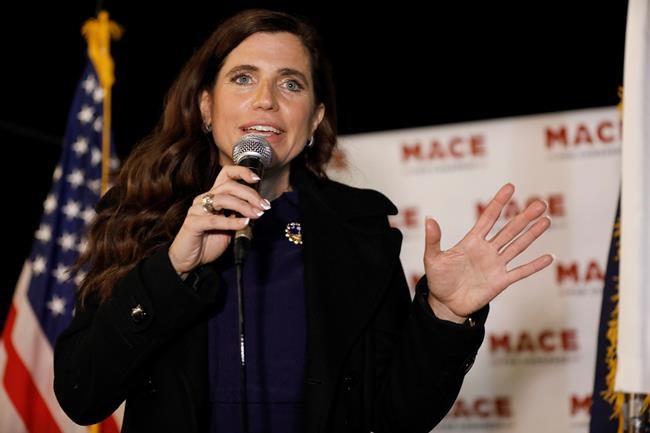Proposal would ban mink farming to stem coronavirus mutation
Advertisement
Read this article for free:
or
Already have an account? Log in here »
To continue reading, please subscribe:
Monthly Digital Subscription
$1 per week for 24 weeks*
- Enjoy unlimited reading on winnipegfreepress.com
- Read the E-Edition, our digital replica newspaper
- Access News Break, our award-winning app
- Play interactive puzzles
*Billed as $4.00 plus GST every four weeks. After 24 weeks, price increases to the regular rate of $19.00 plus GST every four weeks. Offer available to new and qualified returning subscribers only. Cancel any time.
Monthly Digital Subscription
$4.75/week*
- Enjoy unlimited reading on winnipegfreepress.com
- Read the E-Edition, our digital replica newspaper
- Access News Break, our award-winning app
- Play interactive puzzles
*Billed as $19 plus GST every four weeks. Cancel any time.
To continue reading, please subscribe:
Add Winnipeg Free Press access to your Brandon Sun subscription for only
$1 for the first 4 weeks*
*$1 will be added to your next bill. After your 4 weeks access is complete your rate will increase by $0.00 a X percent off the regular rate.
Read unlimited articles for free today:
or
Already have an account? Log in here »
Hey there, time traveller!
This article was published 02/07/2021 (1527 days ago), so information in it may no longer be current.
COLUMBIA, S.C. (AP) — A bipartisan proposal in the U.S. House would ban the farming of mink fur in the United States in an effort to stem possible mutations of the coronavirus, something researchers have said can be accelerated when the virus spreads among animals.
The bill introduced this week is an effort from Reps. Rosa DeLauro, D-Conn., and Nancy Mace, R-S.C. It would prohibit the import, export, transport, sale or purchase of mink in the United States.
Researchers have said that spread of COVID-19 among animals could speed up the number of mutations in the virus before it potentially jumps back to people.

Last year, the European Centre for Disease Prevention and Control issued new guidance to curb the spread of the coronavirus between minks and humans. The agency warned that when COVID-19 starts spreading on a mink farm, the large numbers of animal infections means “the virus can accumulate mutations more quickly in minks and spread back into the human population.”
Denmark reported last year that 12 people had been sickened by a variant of the coronavirus that had distinct genetic changes also seen in mink.
“What we want to do is ban the inhumane practice of farming mink for fur,” Mace said Friday during an interview with The Associated Press. “At the same time, it’s also a public health crisis, so it helps fix both of those situations.”
“Knowing that there are variants, and being someone who cares about the humane treatment of animals, this is sort of a win-win for folks,” she added. “And I believe that you’ll see Republicans and Democrats on both sides of the aisle work on this together.”
According to Fur Commission USA, a nonprofit representing U.S. mink farmers, there are approximately 275 mink farms in 23 states across the United States, producing about 3 million pelts per year. That amounts to an annual value of more than $300 million, according to the commission.
There have been several mink-related coronavirus cases in the U.S. In December, a mink caught outside an Oregon farm tested positive for low-levels of the coronavirus. State officials said they believed the animal had escaped from a small farm already under quarantine because of a coronavirus outbreak among mink and humans.
According to the U.S. Centers for Disease Control and Prevention, a mink on a Michigan farm “and a small number of people” were infected with a coronavirus “that contained mink-related mutations,” something officials said suggested that mink-to-human spread may have occurred.

While mink-to-human spread is possible, CDC officials said “there is no evidence that mink are playing a significant role in the spread of SARS-CoV-2 to people.”
___
Meg Kinnard can be reached at http://twitter.com/MegKinnardAP.

